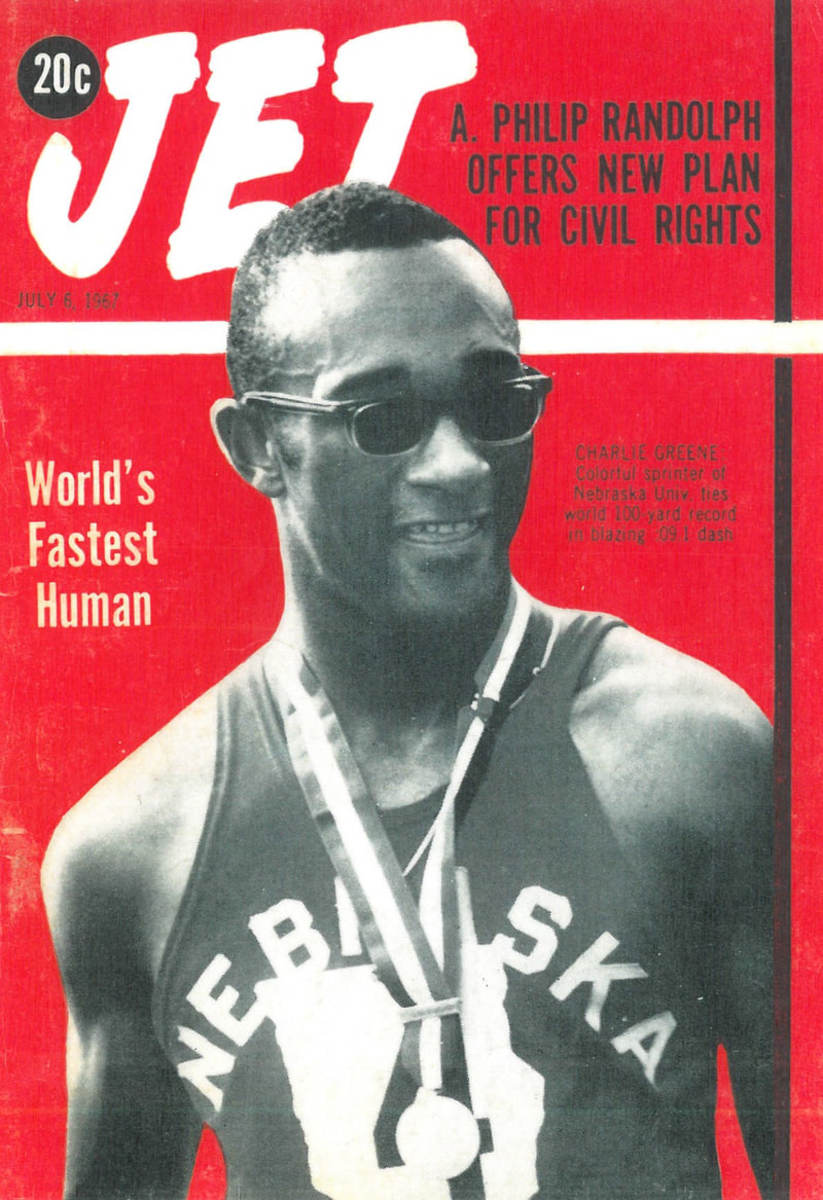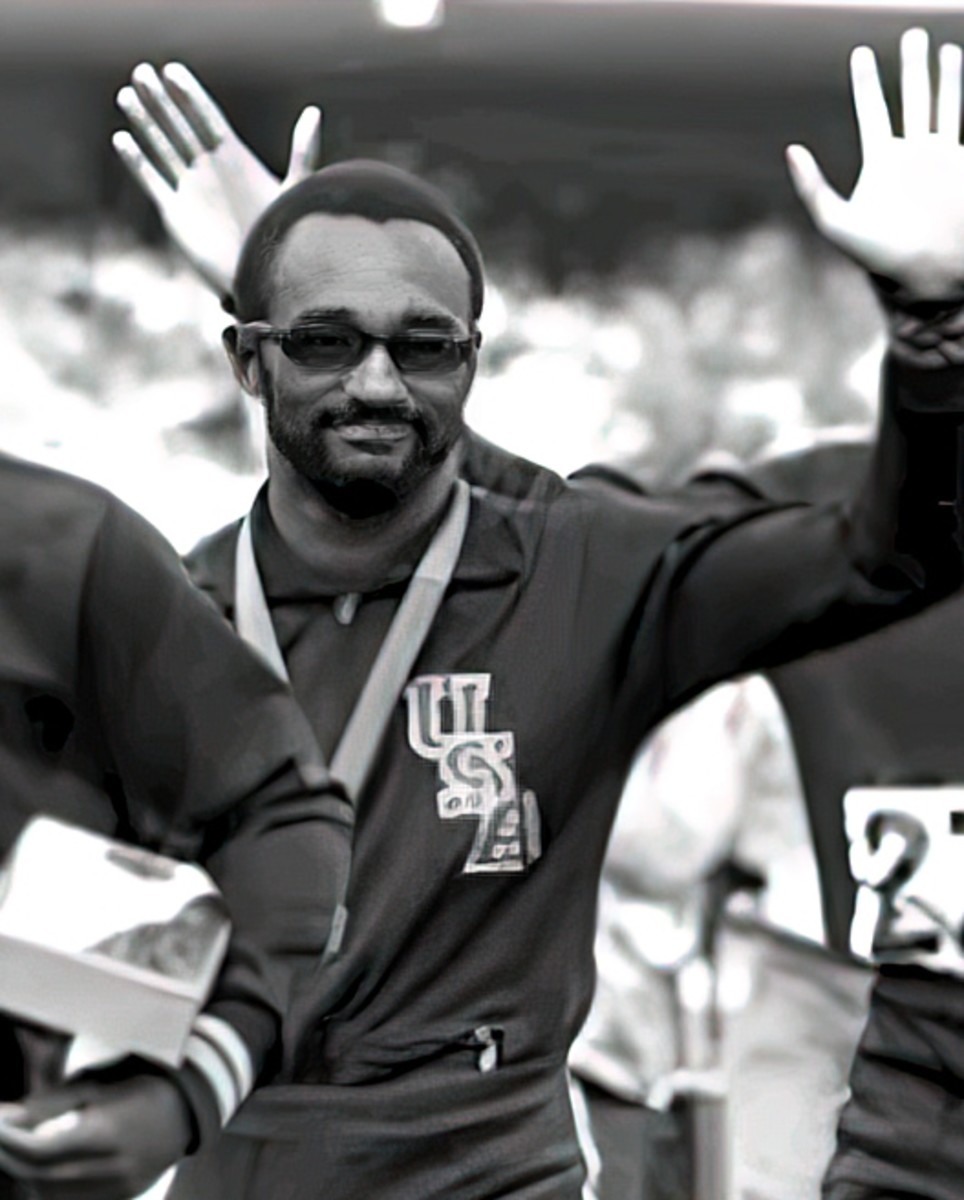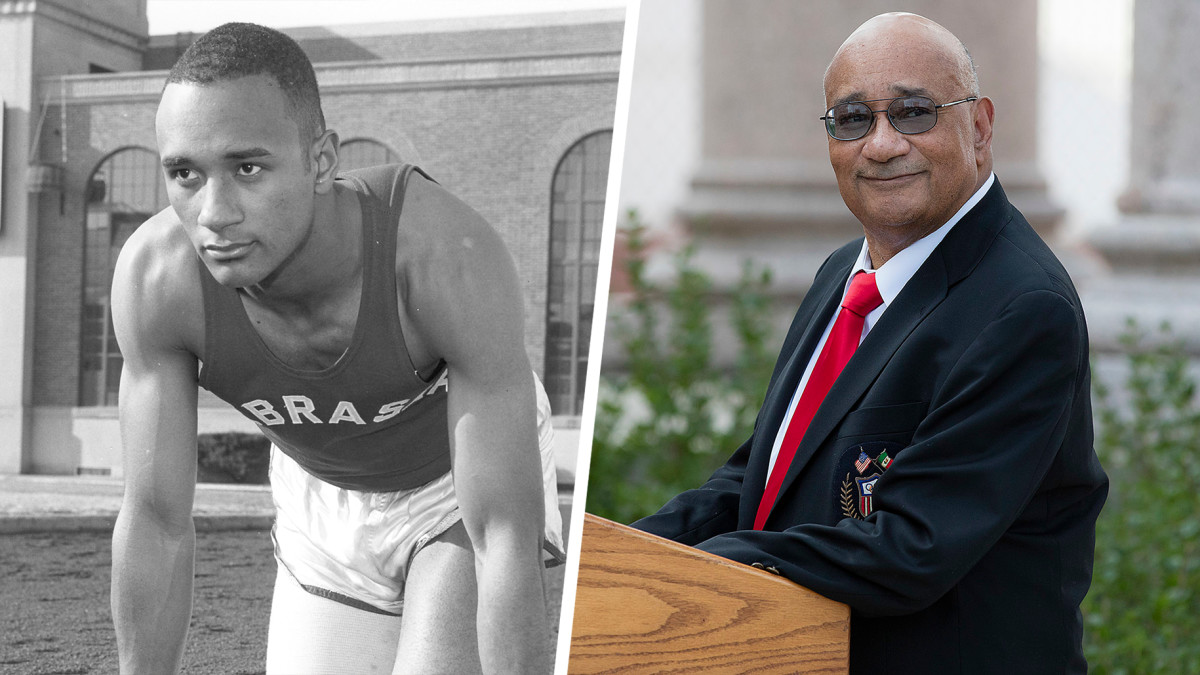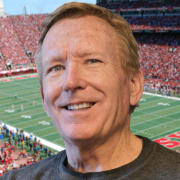Charlie Greene, legendary Husker sprinter, dies at 76

Nebraska has lost a giant in the track and field world.
Hall-of-fame sprinter Charlie Greene, a six-time NCAA champion for the Huskers and a winner of gold and bronze Olympic medals in 1968, died Monday in Lincoln, one week short of his 77th birthday.

Greene won three consecutive 60-yard dash titles at the 1965, 1966 and 1967 NCAA Indoor Championships, and he was the NCAA outdoor champion in the 100-meter dash all three years.
A particularly memorable night occurred in June 1968. The AAU Championships in Sacramento served as a showcase of his rivalry with Jim Hines in the 100 meters, and Greene twice equaled the world record on his way to winning the event.
A few months later, in October 1968, Greene ran the leadoff leg for the U.S. 4x100-meter Olympic relay team that won the gold medal in Mexico City in a world-record time of 38.19. It was the first-ever Olympic gold by a Husker, and he followed that with a bronze in the 100-meter dash despite running with an injured hamstring. (Hines won the gold in world-record time.)
Even when competing at night or indoors, the 5-foot-8 Greene would wear his trademark sunglasses. Asked why, he explained: "They're not sunglasses, they're re-entry shields."
In Mexico City, his biggest win might have been meeting Linda Arnone, a reporter covering the games for the Philadelphia Inquirer. They married in January 1969, and he soon embarked on a two-decade military career. Along the way, Charlie and Linda became the parents of two daughters, Mercedes and Sybil.
Greene later worked for Special Olympics International in the Washington, D.C., area before returning in 1997 to Lincoln, where he worked in student affairs for the university for six years. Greene remained a big part of the Lincoln community after retirement, as he trained high school track and field athletes and volunteered for the Husker Life Skills program. But health issues, including diabetes and kidney trouble, took their toll.

Denny Walker, a teammate of Greene's at Nebraska, described Greene as a loving person, a family man and a loyal friend.
"I felt honored to be on a relay team with the fastest man in the world. He helped me fulfill my dream," Walker said.
"One of his favorite things was to go down to the university and sit and talk to the athletes. ... He felt so good about helping those kids become the people they had become.
"In his backyard, he had a setup for kids to learn how to sprint the 40-yard dash, and Charlie would help get athletes two- to three-tenths of a second faster. It didn't matter who you were or what sport you played, there was nothing he enjoyed more than helping kids become better athletes and people."
Greene was born in in Arkansas and grew up in Seattle. He was a seven-time All-American and 11-time conference champion. His Nebraska school records in the 50-yard, 60-yard and 100-meter dashes still stand. He is a member of the Nebraska Athletics Hall of Fame, the USA Track & Field Hall of Fame and the U.S. Olympic Hall of Fame.
Note: This article contains information provided by Nebraska Athletics. More insights into Greene's life and athletic career can be found in interviews from 2015 and 2018. Go here for a list of all his times at the 1968 Summer Olympics.

